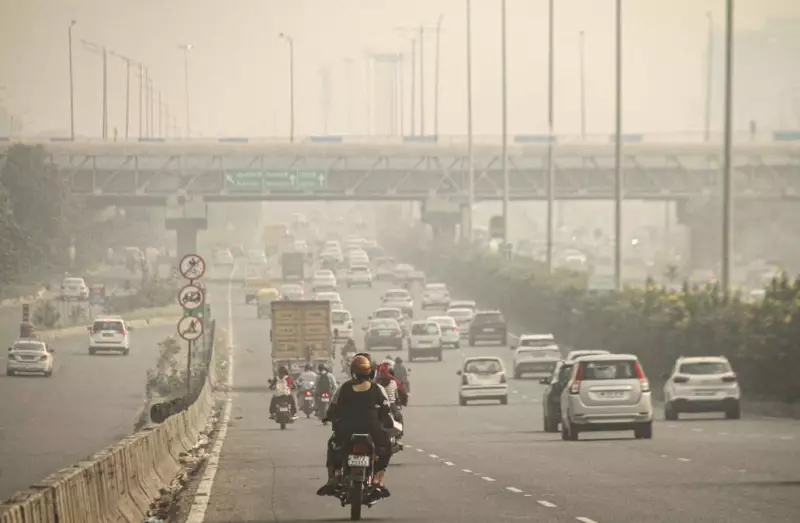
Delhi-NCR continues to gasp for breath as a thick layer of toxic smog enveloped the region, pushing air quality levels deep into the 'severe' category. The situation remains critical with no immediate relief in sight.
Punjabi Bagh Emerges as Pollution Epicenter
The monitoring station at Punjabi Bagh recorded the highest pollution levels in the capital, registering a dangerous Air Quality Index (AQI) of 433. This places it firmly in the 'severe' category, posing serious health risks to residents.
Regional Air Quality Breakdown
The pollution crisis has gripped the entire National Capital Region:
- Punjabi Bagh: AQI 433 (Severe)
- Delhi University: AQI 423 (Severe)
- Noida: Consistently poor air quality
- Gurugram: Similar hazardous conditions
Visibility Plummets, Health Concerns Rise
The dense smog layer has significantly reduced visibility across the region, affecting transportation and daily life. Medical experts have issued health advisories, particularly for children, elderly, and those with pre-existing respiratory conditions.
Immediate Health Precautions Recommended
- Avoid morning and evening outdoor activities
- Wear N95 masks when stepping outside
- Keep windows closed during peak pollution hours
- Use air purifiers indoors
- Stay hydrated and monitor respiratory symptoms
The persistent pollution crisis highlights the urgent need for comprehensive measures to address air quality issues in one of the world's most polluted regions. Authorities continue to monitor the situation as residents brace for another day of hazardous air.





